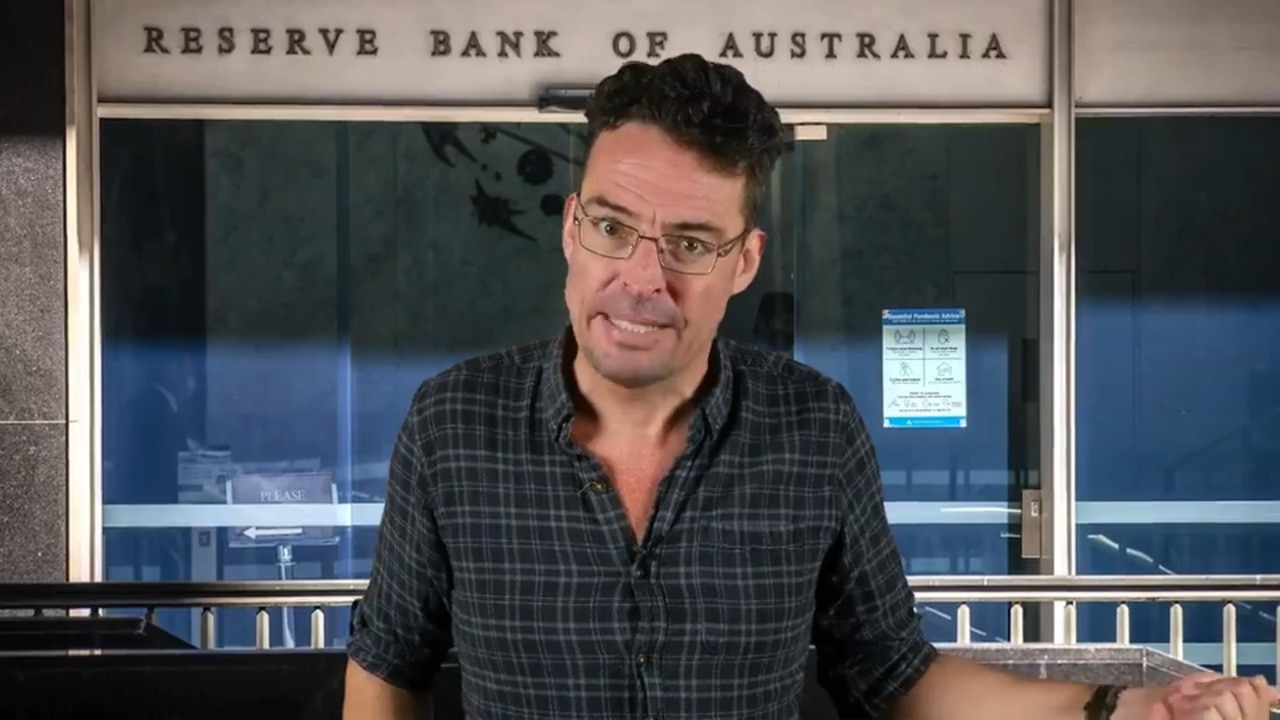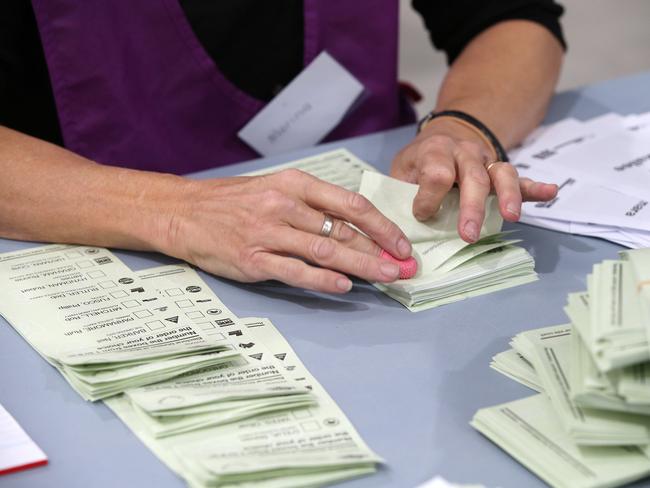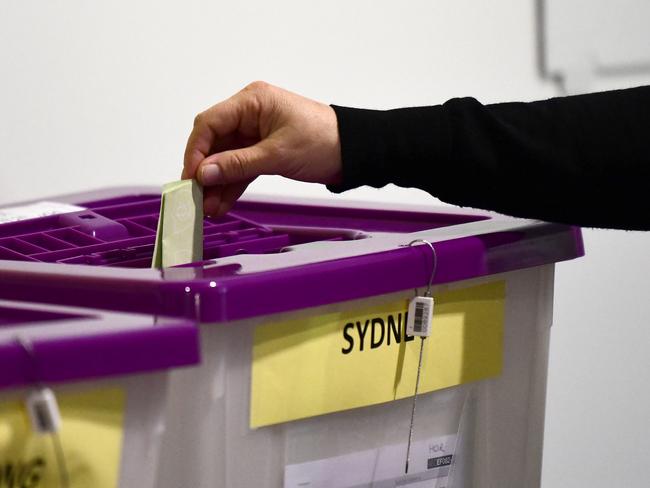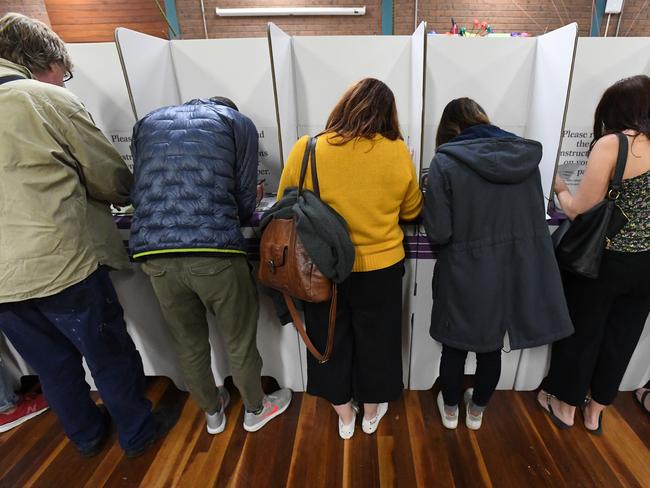How to get a job working at the Federal Election 2025
The upcoming federal election will provide job opportunities for hundreds of thousands of Australians. Here’s how to land a role and what you can earn.

Federal Election
Don't miss out on the headlines from Federal Election. Followed categories will be added to My News.
The 2025 federal election will provide employment opportunities for around 100,000 Australians across the country, the Australian Electoral Commission has announced.
The AEC has put the call out for those wanting to work over the election to register their interest, with various roles set to become available.
Those who want to be in the running for a role can register online at aec.gov.au/electionjobs, the AEC said.

Once submitted, the AEC will assess the prospective worker’s registration of interest and contact them if they are suitable for a role.
On-the-job training support will be provided for those who are successful.

Staff members are normally needed during business hours but some roles might include extended hours and weekend work.
The primary job after election day is the recounting of all ballot papers, with around 28 million papers to be counted after election day across the country.
The AEC said pay for the election jobs would range from $30.14 to $36.64 per hour, depending on the type of role.
This range includes the base hourly rate plus 25 per cent loading. Overtime incurs a 50 per cent or 100 per cent loading.

The AEC said the election would create over 100,000 jobs in cities, regional and remote areas across Australia.
It said an election job offered a way for people to contribute to their community and Australia’s democracy.
A role could offer up to seven weeks of work depending on the job and worker will receive paid training and the chance to learn new and transferrable skills, such as customer service, leadership and operational delivery.
"To reflect the diverse community we serve, the AEC welcomes people from all backgrounds, including Aboriginal and Torres Strait Islander peoples and people from culturally and linguistically diverse backgrounds, and people with disability," the AEC said.
WHAT KIND OF JOBS ARE AVAILABLE DURING THE FEDERAL ELECTION?
A majority of those recruited to work during the upcoming election will be working in polling places on election day, on May 3, 2025.
Others will be working before election day in early voting centres or outposted centres, which are temporary warehouse-like facilities.
Pre-poll officers help issue ballot papers to voters in pre-poll voting centres during the early voting period.
There are also positions available in the area of mobile polling, where teams visits facilities such as aged care, prisons and remote communities to help people vote when no other voting services are available or accessible.
They do not have to be available during the whole election period, the AEC said.
ELIGIBILITY FOR ELECTION JOBS
To be eligible for a job, you must be an Australian citizen and neutral in terms of politics and issues.
Those under the age of 18 can work, if their state or territory laws allow it. There are temporary assistant level 1 jobs available before or after voting day. However, they won’t be able to administer voting or unfold or count ballot papers.
WHEN WILL WORK START?
If a person is offered a position, they will be notified by email to view their offer by logging into AEC EmployMe. The employment start and end dates will be shown on the Offer of Casual Employment.
HOW DO I APPLY FOR AN ELECTORAL TASKFORCE JOB?
People, can register their interest for a job online at aec.gov.au/electionjobs
WHAT TIME DO I START WORK ON ELECTION DAY?
The day starts at 7am, when polling officials get a face-to-face briefing. After the briefing, polling officials finalise the set up of the polling place so that polling can begin at 8am. This includes things like setting up voting equipment.
WHAT TO DO IF YOU'RE SICK AND YOU CAN'T WORK?
Contact your Divisional office as soon as possible using the information at the bottom of your Offer of Casual Employment letter.If you don’t have this information, call 13 23 26.
HOW BUSY DOES IT GET?
Polling places tend to be busiest in the morning, although the whole day can be steady.
A small number of additional positions are available to help cover the busy period and breaks, and these are usually shifts of around five hours.
The size of polling places varies across Australia. Some large polling places take over 6,000 votes and employ around 16 people.
Smaller polling places such as those in rural and remote areas may take only 100 votes and have a few staff members.
WHAT HAPPENS ONCE VOTING HAS FINISHED?
After the poll closes at 6pm the main job is to count the House of Representatives and Senate ballot papers.
Training will be provided on how to do this. It includes removing ballots from ballot boxes, unfolding, sorting and counting.
The day usually ends at around 11pm when all votes are counted and the polling place is packed away, but this may vary depending on the polling place.
IS FOOD PROVIDED AND WHAT ABOUT BREAKS?
Staff take at least a 30-minute meal break after continuously working for five hours. Meal breaks are co-ordinated by the supervisor.
Food isn’t provided. Not all polling places are near shops so bring enough food and drinks to get you through the day.
WHAT IF I HAVE A MEDICAL CONDITION?
If you have special requirements or medical conditions, let your supervisor know before starting work so they can accommodate your needs.
Originally published as How to get a job working at the Federal Election 2025



